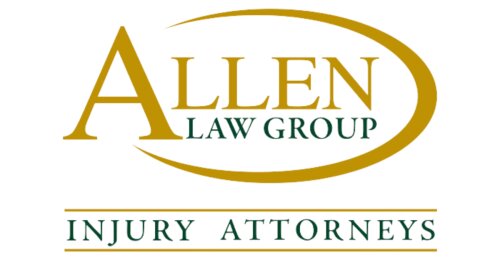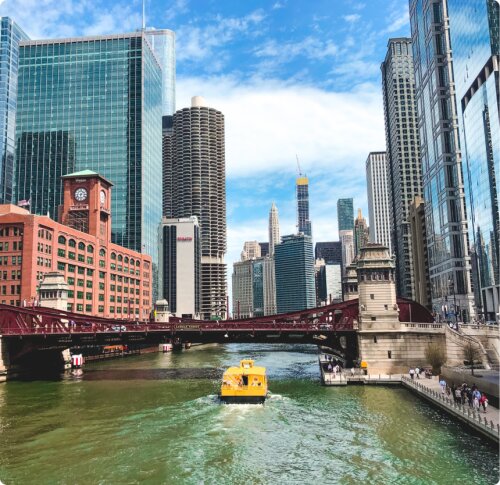Best Antitrust Litigation Lawyers in Illinois
Share your needs with us, get contacted by law firms.
Free. Takes 2 min.
Or refine your search by selecting a city:
List of the best lawyers in Illinois, United States
About Antitrust Litigation Law in Illinois, United States
Antitrust litigation involves legal disputes arising from alleged violations of antitrust laws, which are designed to promote fair competition and prevent monopolies or unlawful restraints on trade. In Illinois, as in the rest of the United States, both state and federal laws address anticompetitive practices such as price fixing, bid rigging, market allocation, and monopolistic behavior. Businesses and individuals can become involved in antitrust litigation as either plaintiffs or defendants. These cases may be initiated by private parties, competitors, consumers, or government agencies.
Why You May Need a Lawyer
Antitrust litigation is complex and often involves significant financial and legal implications. You may need a lawyer in the following situations:
- You believe your business has suffered damages due to unfair competition or monopolistic practices.
- Your company is accused of engaging in activities that may violate state or federal antitrust laws.
- You are undergoing a merger or acquisition that could potentially reduce market competition and trigger government scrutiny.
- You receive a subpoena or investigation notice from regulatory bodies such as the Illinois Attorney General or Federal Trade Commission.
- You are a consumer or competitor who has been harmed by anti competitive behavior in your industry.
- Your business needs advice on compliance to avoid infringing on antitrust laws in Illinois.
Legal counsel can help you understand your rights and obligations, develop a defense or litigation strategy, and represent your interests in negotiations, settlements, or court.
Local Laws Overview
Illinois antitrust litigation is governed by both state and federal laws. At the federal level, key statutes include the Sherman Antitrust Act, the Clayton Act, and the Federal Trade Commission Act. Illinois has its own Antitrust Act (Illinois Antitrust Act, 740 ILCS 10), which closely mirrors federal regulations but is enforced by the Illinois Attorney General and allows for private lawsuits under state law.
Key aspects of Illinois antitrust law include:
- Prohibiting contracts, conspiracies, or combinations that unreasonably restrain trade or commerce.
- Allowing individuals and businesses to seek damages for injuries suffered due to antitrust violations.
- Granting the Illinois Attorney General the authority to seek civil penalties and injunctions against violators.
- Aligning with federal enforcement and investigation procedures but providing for some state-specific remedies and definitions.
Understanding the interplay between state and federal laws is important, as some cases may be prosecuted under both.
Frequently Asked Questions
What is considered an antitrust violation in Illinois?
Antitrust violations include price fixing, bid rigging, market allocation, monopolization, and any agreement or conduct that unreasonably restrains competition or harms consumers or competitors in the marketplace.
Who can file an antitrust lawsuit in Illinois?
Both private parties (such as businesses or consumers harmed by anticompetitive conduct) and the Illinois Attorney General can initiate antitrust litigation.
What remedies are available if I win an antitrust case?
Potential remedies include monetary damages (possibly tripled in some cases), injunctive relief to stop the illegal conduct, and recovery of legal costs and attorney fees.
Can federal and state antitrust laws apply to the same case?
Yes. Many antitrust cases involve both state and federal authorities, and violations can be prosecuted under both legal frameworks simultaneously.
How long do I have to file an antitrust lawsuit in Illinois?
The statute of limitations for most antitrust claims in Illinois is four years from the date the violation was discovered or should have been discovered.
What are common defenses in antitrust litigation?
Defendants may argue that their conduct did not restrict competition, that there is no evidence of collusion, or that legitimate business justifications exist for the challenged conduct.
Are all monopolies illegal under Illinois law?
No, only monopolies that are acquired or maintained through anticompetitive conduct, rather than through legitimate business success, violate antitrust laws.
Can small businesses be affected by antitrust laws?
Yes, antitrust laws apply to businesses of all sizes. Small businesses can be both victims and potential violators depending on the conduct at issue.
Do I need a lawyer to respond to an antitrust investigation?
Yes, responding to an antitrust investigation involves complex legal and factual analysis. Representation by an experienced antitrust attorney is strongly recommended.
What are the consequences of violating antitrust laws in Illinois?
Penalties include monetary damages, injunctions, loss of business, reputational harm, and in some cases, criminal prosecution for severe violations.
Additional Resources
If you are seeking advice or information on antitrust litigation in Illinois, consider reaching out to:
- Illinois Attorney General’s Antitrust Bureau: This office investigates and prosecutes antitrust violations within the state.
- Federal Trade Commission (FTC): The FTC offers guidance on federal antitrust laws and accepts complaints from individuals and businesses.
- United States Department of Justice Antitrust Division: Responsible for enforcing federal antitrust laws and pursuing major cases.
- Local bar associations: Many offer lawyer referral services for those seeking attorneys experienced in antitrust matters.
Next Steps
If you believe you have an antitrust issue or are facing litigation in Illinois, consider taking the following steps:
- Document any evidence related to your case, including contracts, emails, meeting notes, and market analyses.
- Refrain from discussing the matter with competitors or others who may be involved, as statements could be used against you.
- Contact a lawyer who specializes in antitrust law to assess your situation and advise on your options.
- If you are facing a government investigation, seek legal representation immediately to ensure your rights are protected.
Early consultation with an experienced attorney can help you navigate the complexities of antitrust litigation and increase your chances of a favorable outcome.
Lawzana helps you find the best lawyers and law firms in Illinois through a curated and pre-screened list of qualified legal professionals. Our platform offers rankings and detailed profiles of attorneys and law firms, allowing you to compare based on practice areas, including Antitrust Litigation, experience, and client feedback.
Each profile includes a description of the firm's areas of practice, client reviews, team members and partners, year of establishment, spoken languages, office locations, contact information, social media presence, and any published articles or resources. Most firms on our platform speak English and are experienced in both local and international legal matters.
Get a quote from top-rated law firms in Illinois, United States — quickly, securely, and without unnecessary hassle.
Disclaimer:
The information provided on this page is for general informational purposes only and does not constitute legal advice. While we strive to ensure the accuracy and relevance of the content, legal information may change over time, and interpretations of the law can vary. You should always consult with a qualified legal professional for advice specific to your situation.
We disclaim all liability for actions taken or not taken based on the content of this page. If you believe any information is incorrect or outdated, please contact us, and we will review and update it where appropriate.
Browse antitrust litigation law firms by city in Illinois
Refine your search by selecting a city.















